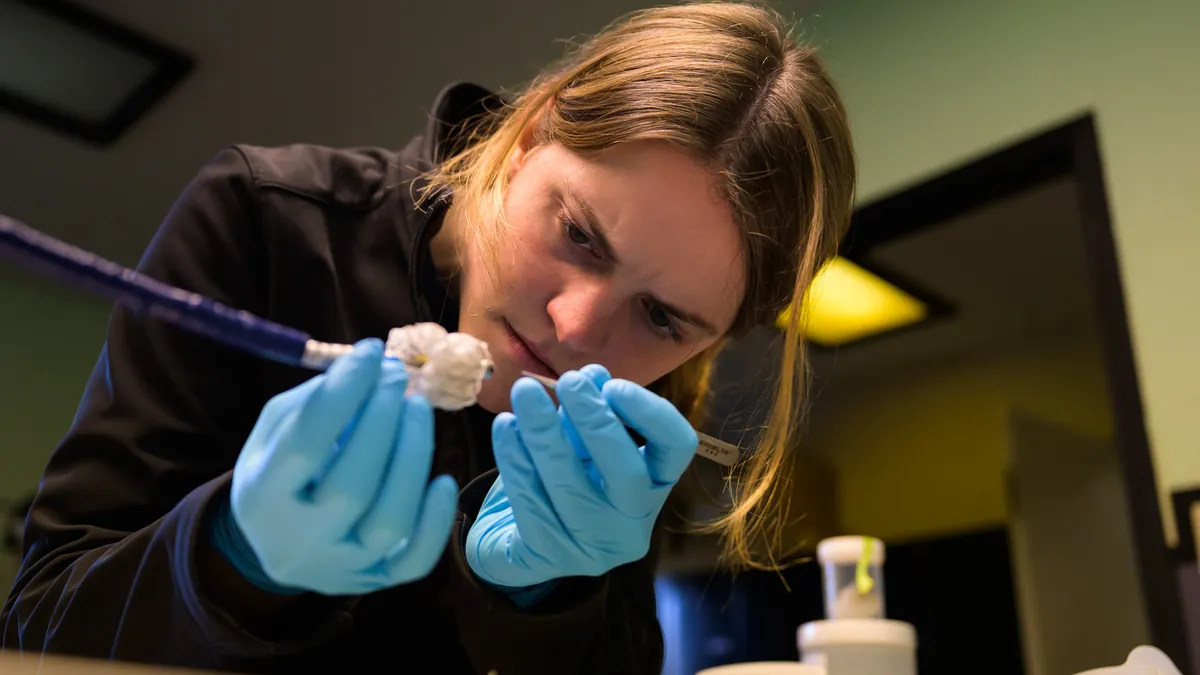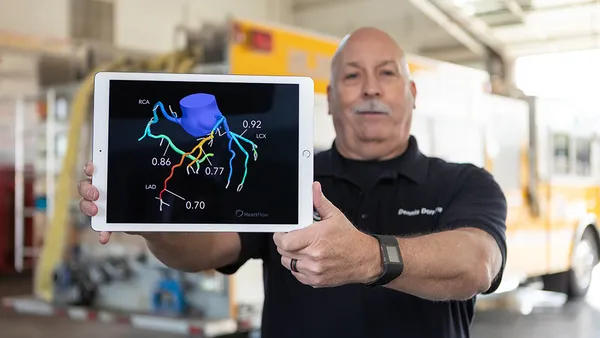Dive Brief:
- Capstan Medical, which is developing heart valve implants with a robotic delivery platform, said Wednesday it has secured $110 million in new funding to advance its work leading to upcoming pivotal trials.
- Capstan’s mitral valve technology is on track for first-in-human trials in early 2025, with pivotal trials targeted for 2026, CEO Maggie Nixon told MedTech Dive in an email.
- The oversubscribed Series C round was led by venture capital fund Eclipse and includes existing investors Yu Galaxy and Intuitive Ventures, the investment arm of robotic surgery leader Intuitive Surgical. Gideon Strategic Partners joined as a new investor in the round.
Dive Insight:
Capstan’s minimally invasive, robotic-assisted technology aims initially to address mitral valve regurgitation, a prevalent cardiac condition in which the valve does not close properly, causing blood to flow back to the heart.
The Santa Cruz, California-based company is also developing a replacement implant to treat regurgitation in the tricuspid valve.
“With this round of funding, we will also move our tricuspid replacement implant and instrument into full development in preparation for first in human [trials]. Both mitral and tricuspid will leverage the same robotic platform,” Nixon said.
Capstan, which was founded in 2020, said its robotic-assisted approach would be the first of its kind. The startup will be taking on established heart device makers Abbott and Edwards Lifesciences that already have mitral and tricuspid valve treatments on the market.
Abbott makes the Mitraclip transcatheter repair device to treat mitral valve regurgitation and the Triclip device for tricuspid regurgitation. Edwards sells the Pascal system for mitral and tricuspid valve repair as well as the Evoque tricuspid valve replacement system. Both companies are seeing fast growth in demand for the devices.
Edwards and Medtronic lead the market in transcatheter aortic valve replacement.
Nixon, an Intuitive veteran, said Capstan is focused primarily on mitral and tricuspid treatment, where it sees “significant unmet patient need,” but its technology could be used to “further advance treatment for the aortic valve in the future.”
Capstan raised $31.4 million in a 2023 financing round.












